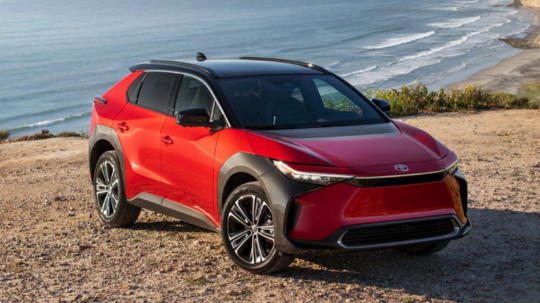Toyota is presently in the process of developing an innovative solid-state battery that could achieve an astonishing 745 miles on a single charge, all without imposing any driving restrictions.
Solid-state batteries offer remarkable advantages due to their higher energy density, potentially allowing for a significant reduction in the size and weight of electric vehicle (EV) batteries. This advancement has the potential to cut the dimensions of EV batteries in half.
In this ambitious endeavor, Toyota has joined forces with Panasonic and invested substantial funds. However, several challenges must be addressed to make solid-state car batteries feasible. These challenges include temperature sensitivity and cost concerns.
Toyota has officially revealed its progress in developing a solid-state battery that can deliver an impressive 745 miles on a single charge. Notably, Toyota’s announcements suggest that achieving this range is attainable under normal driving conditions, without disclaimers like “If driven very cautiously without using the heater or the radio.” Toyota anticipates that this innovative battery will be ready for production by the year 2025.
The allure of solid-state batteries, which store energy in a solid electrolyte rather than a liquid or paste, is too compelling for the automotive industry to ignore. These batteries possess a higher energy density than any other battery type, meaning they can store more electricity in a smaller physical space. Consequently, they are lighter and more compact compared to other battery types, and given that batteries are often the heaviest component of an electric car, this breakthrough could significantly reduce the size of EV batteries.
Nevertheless, solid-state batteries present inherent challenges for automotive applications. They struggle to handle temperature fluctuations and are ill-suited for extended exposure to outdoor conditions throughout their useful lifespan. Additionally, they degrade relatively quickly with repeated charging and discharging cycles, which becomes noticeable as a decrease in the solid-state car’s range over time. Furthermore, they require a higher amount of rare-earth metals, which naturally escalates their cost.
Toyota has opted for a collaborative approach by partnering with Panasonic instead of pursuing solid-state battery development in isolation. Together, these two companies possess an extensive portfolio of over a thousand battery patents. Their joint efforts have required a substantial investment of $13.6 billion as of 2021 in their ongoing quest to make viable solid-state car batteries. In 2020, reports indicated that the companies were exploring a sulfur-based electrolyte, which demonstrated enhanced electron conductivity, although it exhibited susceptibility to deformation during charge and discharge cycles—a common challenge associated with solid-state batteries.
